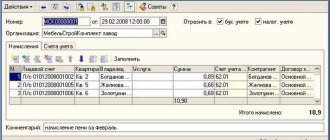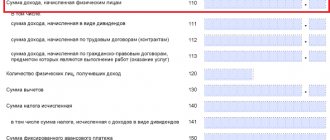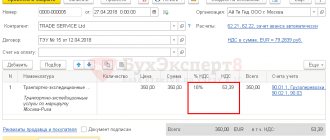Operating since 1998 The Tax Code of the Russian Federation does not contain the concept of “Conscientious taxpayer,” although the law enforcement practice of tax disputes for many years has linked the right to use tax benefits (tax deductions and expenses) precisely with conscientiousness in the calculation and payment of taxes.
The concept of good faith of a taxpayer has been repeatedly formulated by the Constitutional Court of the Russian Federation. Thus, characterizing the conscientious behavior of the taxpayer when paying taxes, the Constitutional Court gave the following arguments:
The constitutional obligation of each taxpayer to pay taxes must be considered fulfilled at the moment when the seizure of part of his property intended for payment to the budget as a tax actually occurs. Such withdrawal occurs when the bank debits the appropriate funds from the taxpayer’s current account to pay the tax. After debiting from the current account, the taxpayer’s property has already been confiscated, i.e. tax has been paid. Therefore, the provision on payment of tax contained in Article 57 of the Constitution of the Russian Federation must be understood as the actual withdrawal of tax from taxpayers.
Thus, the Constitution of the Russian Federation provides for a distinction between property that the taxpayer cannot dispose of at his own discretion, since it is subject to contribution to the budget in the form of a certain amount of money, and property that is privately owned, the guarantees of which are provided for in Article 35 of the Constitution of the Russian Federation.
Repeated collection from a bona fide taxpayer of taxes not received into the budget violates the constitutional guarantees of private property. (Resolution of the Constitutional Court of the Russian Federation dated October 12, 1998 N 24-P).
In the described legal situation, a bona fide taxpayer is a taxpayer who fulfills the constitutional obligation to pay taxes to the budget.
At the same time, for practical purposes of tax disputes regarding tax audits for periods up to mid-August 2021, the provisions of paragraph 7 of Article 3 of the Tax Code of the Russian Federation are applied, according to which in the field of tax relations there is a presumption of good faith of taxpayers , and the obligation to prove the bad faith of the taxpayer is assigned to the tax authorities. (Determination of the Constitutional Court of the Russian Federation dated July 25, 2001 N 138-O).
Until mid-August 2021 (entry into force of Article 54.1 of the Tax Code), when resolving tax disputes, the courts adhered to the legal position on the taxpayer’s right to receive a tax benefit if it was justified.
According to the courts, a tax benefit may be recognized as unjustified, in particular, in cases where, for tax purposes, transactions are taken into account not in accordance with their actual economic meaning or transactions are taken into account that are not due to reasonable economic or other reasons (business purposes).
In this regard, it is assumed that the actions of the taxpayer, resulting in the receipt of a tax benefit, are economically justified, and the information contained in the tax return and financial statements is reliable.
Submission by the taxpayer to the tax authority of all properly executed documents provided for by the legislation on taxes and fees in order to obtain a tax benefit is the basis for receiving it, unless the tax authority proves that the information contained in these documents is incomplete, unreliable and/or contradictory.
In this regard, when considering a tax dispute in an arbitration court, the tax authority may present to the court evidence of an unjustified tax benefit for the taxpayer.
These positions are set out in Resolution of the Supreme Arbitration Court of the Russian Federation No. 53 of October 12, 2006.
How due diligence is challenged by tax authorities
For VAT deductions and income tax expenses
Tax lawyer Gordon A.E.
Moscow
June 13, 2021
Operating since 1998 The Tax Code of the Russian Federation does not contain the concept of “Conscientious taxpayer,” although the law enforcement practice of tax disputes for many years has linked the right to use tax benefits (tax deductions and expenses) precisely with conscientiousness in the calculation and payment of taxes.
The concept of good faith of a taxpayer has been repeatedly formulated by the Constitutional Court of the Russian Federation. Thus, characterizing the conscientious behavior of the taxpayer when paying taxes, the Constitutional Court gave the following arguments:
The constitutional obligation of each taxpayer to pay taxes must be considered fulfilled at the moment when the seizure of part of his property intended for payment to the budget as a tax actually occurs. Such withdrawal occurs when the bank debits the appropriate funds from the taxpayer’s current account to pay the tax. After debiting from the current account, the taxpayer’s property has already been confiscated, i.e. tax has been paid. Therefore, the provision on payment of tax contained in Article 57 of the Constitution of the Russian Federation must be understood as the actual withdrawal of tax from taxpayers.
Thus, the Constitution of the Russian Federation provides for a distinction between property that the taxpayer cannot dispose of at his own discretion, since it is subject to contribution to the budget in the form of a certain amount of money, and property that is privately owned, the guarantees of which are provided for in Article 35 of the Constitution of the Russian Federation.
Repeated collection from a bona fide taxpayer of taxes not received into the budget violates the constitutional guarantees of private property. (Resolution of the Constitutional Court of the Russian Federation dated October 12, 1998 N 24-P).
In the described legal situation, a bona fide taxpayer is a taxpayer who fulfills the constitutional obligation to pay taxes to the budget.
At the same time, for practical purposes of tax disputes regarding tax audits for periods up to mid-August 2021, the provisions of paragraph 7 of Article 3 of the Tax Code of the Russian Federation are applied, according to which in the field of tax relations there is a presumption of good faith of taxpayers , and the obligation to prove the bad faith of the taxpayer is assigned to the tax authorities. (Determination of the Constitutional Court of the Russian Federation dated July 25, 2001 N 138-O).
Until mid-August 2021 (entry into force of Article 54.1 of the Tax Code), when resolving tax disputes, the courts adhered to the legal position on the taxpayer’s right to receive a tax benefit if it was justified.
According to the courts, a tax benefit may be recognized as unjustified, in particular, in cases where, for tax purposes, transactions are taken into account not in accordance with their actual economic meaning or transactions are taken into account that are not due to reasonable economic or other reasons (business purposes).
In this regard, it is assumed that the actions of the taxpayer, resulting in the receipt of a tax benefit, are economically justified, and the information contained in the tax return and financial statements is reliable.
Submission by the taxpayer to the tax authority of all properly executed documents provided for by the legislation on taxes and fees in order to obtain a tax benefit is the basis for receiving it, unless the tax authority proves that the information contained in these documents is incomplete, unreliable and/or contradictory.
In this regard, when considering a tax dispute in an arbitration court, the tax authority may present to the court evidence of an unjustified tax benefit for the taxpayer.
These positions are set out in Resolution of the Supreme Arbitration Court of the Russian Federation No. 53 of October 12, 2006.
Accounting and auditing terms - Audit-it.ru
A conscientious taxpayer
A taxpayer is considered to be one who has a good reputation with the tax authorities regarding the fulfillment of his duties as provided for by the Tax Code of the Russian Federation.
Criteria for a bona fide taxpayer
A bona fide taxpayer is considered to be one who:
- in order to reduce the amount of taxes paid, uses only legally established methods;
- pays tax payments on time and in full;
- submits all necessary reports on time;
- responds promptly and completely to requests from tax authorities;
- provides unhindered access to information necessary for tax control.
Who proves bad faith and how?
The responsibility for collecting evidence indicating the taxpayer’s dishonesty and receipt of unjustified tax benefits falls on the Federal Tax Service (Clause 6, Article 108 of the Tax Code of the Russian Federation).
The approach in each specific case must be individual.
At the same time, the data sources that can be used can be very different, but the obtained facts must be convincing (letter of the Federal Tax Service of Russia dated May 24, 2011 No. SA-4-9/8250).
Evidence of unjustified tax benefit
It should be noted that the collection of evidence of companies receiving unjustified tax benefits is carried out successfully and efficiently by tax authorities.
The following facts are accepted as evidence of companies receiving an unjustified tax benefit:
- inconsistency of data relating to the contractor in the carrier’s shipping documents and waybills;
- lack of reports on consulting services provided;
- difficulties in explaining the meaning and circumstances of the transaction;
- testimony of employees confirming the fictitiousness of their registration for work in a controlled company;
- absence of property and employees at the place of registration of the branch;
- lack of real activity of the counterparty (failure to submit reports, non-payment of taxes);
- liquidation or reorganization of the counterparty immediately after a questionable transaction;
- the presence in the chain of counterparties of persons who do not actually carry out activities (lack of movement of funds on accounts or their non-transfer to pay expenses usual for a functioning person);
- exclusion from the Unified State Register of Legal Entities at the time of the transaction;
- disqualification, death or imprisonment at the time of the transaction of the person who signed the document;
- lack of property, personnel and contracts with third parties necessary to carry out the work;
- detection of the taxpayer's seal and constituent documents of the counterparty;
- the presence in the contract of a condition on the agreement between the general contractor and the taxpayer of the subcontractors selected to perform the work.
Problematic counterparty
Recently, one of the most frequently used terms by tax authorities has become a “problem” supplier or its analogue, a “fly-by-night company.”
This is explained by the fact that tax authorities, in practice, successfully prove the so-called dishonesty of suppliers, and the associated unlawful receipt of VAT deductions and the inclusion of costs as expenses that reduce the taxable base for income tax of an organization conducting transactions with a problematic counterparty.
At the same time, the tax authorities use a definition (which is an integral part of bad faith) and a number of its signs to prove that a counterparty is “problematic.”
Thus, a “one-day” legal entity is considered to be a legal entity that is created for a specific operation or for a specific period, usually for a quarter.
These firms do not intend to conduct any real activity, do not submit reports or submit “zero” reports to the tax authorities.
How does the tax office prove receipt of an unjustified tax benefit?
Judicial practice in tax disputes (until mid-August 2017) has developed criteria for assessing the validity of receiving tax benefits by bona fide taxpayers, and tax authorities have developed methods for proving that a taxpayer has received an unjustified tax benefit, which corresponds to unfair actions of taxpayers.
Attention: These methods can be applied for tax audits for periods before August 19, 2021.
What is the method: Tax officials question (challenge) the reliability of the information in the taxpayer’s documents.
The largest number of tax disputes occur due to “crooked” suppliers – fly-by-night suppliers.
Presumption of good faith of the taxpayer - Article 54.1 of the Tax Code of the Russian Federation
The presumption of good faith of the taxpayer is the initial principle of tax legal relations. From our material you will learn how this principle is enshrined in the Tax Code of the Russian Federation and what taxpayers can expect with the appearance in the code of an article prohibiting tax abuse.
How is the presumption of good faith of a taxpayer established in the Tax Code of the Russian Federation?
Prohibitions and rights of taxpayers under Article 54.1 of the Tax Code of the Russian Federation
The concept of unjustified tax benefit
How was it possible to prove an unjustified tax benefit before the introduction of Article 54.1 of the Tax Code of the Russian Federation and what to expect after its introduction
Limitation of formal charges according to the norms of the new article of the Tax Code of the Russian Federation
Results
How is the presumption of good faith of the taxpayer established in the Tax Code of the Russian Federation?
In tax legislation there is no definition of the concept of “presumption of good faith”, and the term itself is not used in legal regulations. At the same time, from Art. 108 of the Tax Code of the Russian Federation it follows that:
- a person is considered innocent of committing a tax offense until his guilt is proven;
- the burden of proving guilt lies with the tax authorities - the taxpayer himself is not obliged to prove his “tax” innocence;
- all irreducible doubts about the taxpayer’s guilt are interpreted in his favor.
The provisions of this article establish at the legislative level the principle of the presumption of good faith of the taxpayer.
To find out whether the principle of presumption of good faith of the taxpayer helps to defend the VAT deduction in court, follow the link .
In practice, the taxpayer in most cases has to prove his innocence himself. With the advent of Art. 54.1 on the prohibition of tax abuse, the taxpayer must take its provisions into account when proving his innocence. Let's look at the contents of this article in more detail.
We talked about the appearance of Article 54.1 in the Tax Code of the Russian Federation here .
Prohibitions and rights of taxpayers under Article 54.1 of the Tax Code of the Russian Federation
Art. 54.1 determines the limits of the taxpayer’s rights to calculate the amount of tax, fee, and insurance payments.
In paragraph 1 of Art. There is a ban on reducing the tax base or tax amount if the taxpayer used inaccurate data when calculating them:
- about the facts of your economic life (or their totality);
- objects of taxation to be reflected in accounting or reporting.
If a business entity uses reliable factual data when determining tax liabilities, it is allowed to reduce the tax base (clause 2 of the article in question). In this case, 2 conditions must be met simultaneously:
- the purpose of the transaction should not be directly related to the reduction of tax liabilities (non-payment (incomplete payment) and (or) offset (refund) of tax);
- the executor of the operation (transaction) must act as a party to the agreement with the taxpayer or other authorized person to whom the obligation to fulfill the agreement has been transferred (by virtue of the agreement or by law).
In the last paragraph of the article, the legislator provides a kind of concession for the taxpayer (we will talk about it later).
This article, although devoted to issues of tax benefit, does not directly explain the concept of unjustified tax benefit, in which controllers are trying to incriminate business entities. In the next section you will learn how judges interpret this concept.
See also: “The Federal Tax Service explained how taxpayer abuses are proven .
The concept of unjustified tax benefit
This term is not deciphered in the Tax Code of the Russian Federation, although proving an unjustified tax benefit (UNB) is widely used by tax authorities in court.
What information will tax officials examine and challenge during tax audits in 2021?
Tax authorities collect and examine a wide range of information - from information on tax returns of the taxpayer being audited and his counterparties, to information about IP addresses of Bank-Client systems.
The credentials of legal entities - audited taxpayers and their counterparties - must be compared.
Mandatory - control parameters of economic activity - risk factors (regional industry average share of deductions, share of expenses).




